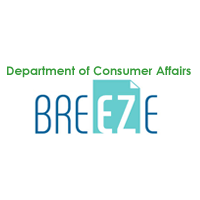Audit Rips Another State Computer Project

The Department of Consumer Affairs (DCA) provides administrative support for 40 boards, bureaus, committees and a commission to help these regulators annually process more than 350,000 applications for professional licenses and 1.2 million license renewals.
According to more than a year’s worth of media reports and most of the entities receiving assistance—and now (pdf) the California State Auditor (CSA)—the department is more of a hindrance than a help.
The department’s new computer system, BreEZe, was designed to eventually provide a common online interface that would allow all the department’s entities to perform numerous task, including “applicant tracking, licensing, renewal, enforcement, monitoring, cashiering, and data management capabilities.”
But the State Auditor reported this week that the system, designed by Accenture and budgeted at $28 million, has cost $96 million, so far, serves less than half the boards, etc. it should by now and doesn’t work very well.
Eight of the 10 entities that use BreEZe told the Auditor that it decreased their efficiency.
How did this happen? For openers, “Consumer Affairs failed to adequately plan, staff, and manage the project for developing BreEZe,” the Auditor wrote.
The department failed in one of its most basic tasks: evaluating the business needs of each entity when designing the system requirements. Instead of gathering that information, the department relied on old documents from earlier, abandoned projects.
The department had help in nurturing this misfit of a system from the California Department of Technology (CalTech—no, not that Caltech) and the Department of General Services (DGS).
The Auditor called out CalTech for noting “180 significant and persistent concerns about the BreEZe project in monthly reports between December 2010 and September 2014 in areas including project management, staffing, system requirements, and vendor performance” but, nonetheless, “allowed the project to continue without significant intervention” and approved additional funding.
The Auditor also didn’t think much of DGS and the Consumer Affairs department signing off on suggested changes to BreEZe contracts by the vendor that “transferred significant risk to the State.” The changes included limits on the department’s ability to terminate contracts.
Last year, BreEZe was unable to process license applications for the Board of Registered Nursing. That is no small matter to students graduating from nursing school and practicing nurses in need of a renewal. At one point, at least 4,000 paper applications were laying on desks while the board hired emergency staff to help type the information into the system. That is not how BreEZe was designed to work.
Although the Auditor’s report roasted BreEZe throughout, it could not say with certainty that the computer system was responsible for license processing problems at the nursing board because things were pretty screwed up before the arrival of BreEZe in 2013 and the board doesn’t track technical information to prove it is the culprit.
Los Angeles Times columnist Michael Hiltzik called BreEZe a “roadblock” in October 2013 when the Medical Board of California transitioned to it from its clunky, but functional, online site for consumers to check up on doctors, and ended up with one twice as clunky and probably impenetrable for many users.
Eight more entities are expected to transition in March 2016.
–Ken Broder
To Learn More:
Audit Finds Major Cost Increases, Delays in State Computer Project (by Patrick McGreevy, Los Angeles Times)
State Computer Problems Strand Nursing Graduates without Licenses (by Ken Broder, AllGov California)
Inadequate Planning and Oversight Led to Implementation at Far Fewer Regulatory Entities at a Significantly Higher Cost (California State Auditor) (pdf)
- Top Stories
- Controversies
- Where is the Money Going?
- California and the Nation
- Appointments and Resignations
- Unusual News
- Latest News
- California Forbids U.S. Immigration Agents from Pretending to be Police
- California Lawmakers Urged to Strip “Self-Dealing” Tax Board of Its Duties
- Big Oil’s Grip on California
- Santa Cruz Police See Homeland Security Betrayal in Use of Gang Roundup as Cover for Immigration Raid
- Oil Companies Face Deadline to Stop Polluting California Groundwater





